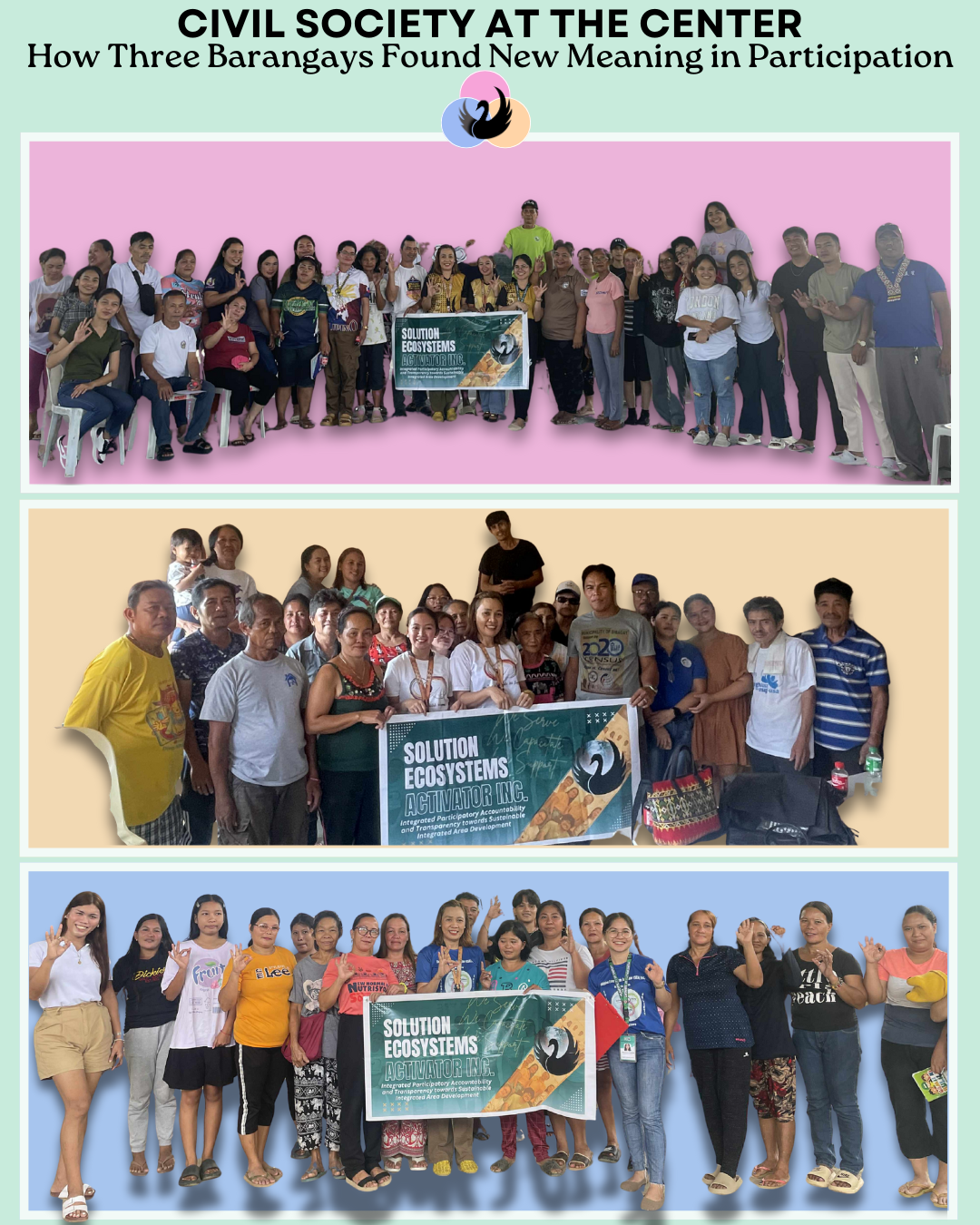In the sweltering July air of 2025, three barangay covered courts—Tag-oyango, Anahawan, and Kauswagan—transformed into spaces of learning, reflection, and inspiration. What unfolded wasn’t just another orientation. It was a reminder that real development begins when communities themselves take the driver’s seat.
The Civil Society Orientation (CSO), led by SEA Inc. under the IPAT-SIAD Program, brought together participants from all walks of life. Target numbers were easily met (and even surpassed)—41 in Tag-oyango, 30 in Anahawan, and 26 in Kauswagan. But more than the headcount, it was the voices and realizations that turned this series of orientations into something more meaningful.
A Warm Welcome, a Bigger Challenge
Each session began with prayer, grounding the community in gratitude and purpose. The barangay captains—Mario Seljuela, Salvador Tuloy, and Ruly—opened with messages that struck a balance between hope and challenge.
Captain Mario’s words in Tag-oyango captured the mood best:
“I hope this program inspires us to participate not just today but in the many activities to come. With the support of the BLGU and CSOs, we can strengthen all the endeavors of SEA Inc. in our barangay.”
It wasn’t just a welcome—it was a gentle challenge: participation isn’t an event, it’s a way of life.
Big Ideas, Real Talk
Ms. Avha kicked things off by sharing the journey of CSOs in New Lucena, Iloilo—stories of advocacy, trainings, and small victories that grew into bigger movements. Her anecdotes gave participants not just a lecture but a living picture of how community empowerment takes root.
Then came Ms. Leslie, whose discussion on the “tri-fold partnership, lemniscate journey, and the seven dimensions of development” stretched minds and sparked debates. At first, the concepts seemed lofty. But when she asked for questions, the barangay participants were quick to connect the dots to their lived realities.
One young man in Tag-oyango bravely asked:
“What’s the gap between IPAT-SIAD and existing programs like TESDA and KALAHI?”
The answer from SEA Inc. staff was both practical and thought-provoking:
“IPAT-SIAD isn’t about one-off projects. It’s about capacitation and inner conditioning. Even if you give millions worth of projects, without discipline and knowledge, they’ll eventually fail. Sustainable development starts from within.”
Heads nodded, as if a light bulb collectively went on.
Wisdom from the Ground
Sometimes, the most powerful insights don’t come from the facilitators but from the people themselves. In Anahawan, one participant spoke up after learning about the seven dimensions of development:
“Spirituality should not be taken for granted. From the beginning, it permeates everything. Development is not possible without God.”
What made this moment powerful wasn’t polished rhetoric but the raw truth of lived faith. As one staff whispered after, “It’s not from a textbook—it’s from the core of his being.”
Meanwhile in Kauswagan, the reflections were equally inspiring. A participant summed it up beautifully:
“CSO orientation has been a meaningful experience. I realized that CSOs are the voice of the people. Collaboration, volunteerism, and collective action are key, especially for the marginalized. This inspired me to be more participative and committed.”
Beyond the Orientation
By the end of the three-day run, the atmosphere across the barangays had shifted. The CSO Orientation wasn’t just an “activity” to tick off a list—it had become fuel for deeper action. Participants talked eagerly about strategic planning for their sectors and expressed excitement for more trainings and workshops.
If there was one takeaway, it was this: civil society is not a bystander in governance—it is a partner, a conscience, and a catalyst.
Or, as one mother in Kauswagan quipped while packing up her notes, toddler in one hand:
“Kung gusto natin ng pagbabago, hindi puwede spectator lang. Kailangan kasama tayo sa laban.”
(If we want change, we can’t just be spectators. We need to be part of the fight.)
In the end, the Civil Society Orientation was more than an event. It was a spark—a reminder that empowered citizens, grounded in values and equipped with knowledge, are the true architects of lasting development.





Leave a Reply